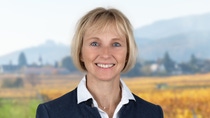Agriculture
Our Positions On Relevant Pieces Of Policy And Legislation

How to Optimize Crop Protection and Maintain Yields
Interview from European Seed with Dr. Anja Klatt
In June 2022, the European Commission published their proposal for a new Regulation on the Sustainable Use of Plant Protection Products (SUR). These include EU wide targets to reduce by 50 per cent the use and risk of chemical pesticides by 2030, which is in line with the EU’s Farm to Fork and Biodiversity strategies. European Seed sat down with Dr. Anja Klatt, Chair of the SUD Committee at Croplife Europe, to explore the impact of this new Regulation on Europe’s seed sector.
November 16, 2022
Our Commitments for Sustainable Agriculture
AmCham EU Green Deal Session
Dr. Anja Klatt, Senior Manager of Government Affairs at BASF outlined BASF’s efforts in advancing sustainable practices in agriculture, such as the development of a new species of wheat: resilient hybrids which can thrive in a wide range of environments, provide a higher yield, improved profits, all without the need to expand farmland. In cooperation with Bosch, BASF is also developing a Smart Spraying solution for targeted weed control. Finally, Dr. Klatt also described a field manager app of BASF, called Xarvio, which develops digital solutions for crop optimization and the digitalization of agriculture.
October 12, 2021

Unwanted Consequences Despite Good Intentions
Article in European Seed from Paul Leonard
Our industry invests billions of Euros each year in research and innovation, much of which goes on generating scientific evidence to demonstrate that new products and technologies are safe. However, our industry is also increasingly criticised for paying for science that furthers its own economic interests. Consequently, policy makers and regulators are under pressure to rely instead on so-called ‘independent science’. European policymakers appear increasingly shy to enter dialogue with industry experts and even public domain scientists who have collaborated with industry partners. Paul Leonard develops on how decision makers can benefit from the best available expertise, insights, and evidence.
September 8, 2021

